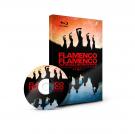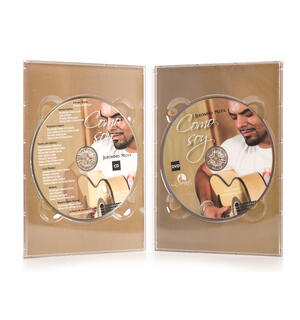The film opens with the Lorcan song por rumba which ‘Flamenco’ was closed with. But this time ‘Verde que te quiero verde’ isn’t performed by Ketama, but rather by young cantaores Ángeles Fernández and Carlos García. The baile is represented by a large lineup of figures of this time. The first to appear, dressed in red, is Sara Baras por alegrías. She is followed by young talents like Rocío Molina por garrotín, the acclaimed Eva Yerbabuena with the soleá ‘Llanto’, the avant-garde Israel Galván with ‘Silencio’, the creative Rafael Estévez and Nani Paños dancing a guajira by Arcángel, Farruquito with the piece ‘Lluvia de ilusión’ and even his little brother Manuel Fernández ‘El Carpeta’ pointing to the future with a bulería. Moreover, there is room for the group baile choreographed by Javier Latorre in the pieces ‘Semana Santa’ and ‘El tiempo’.
The entire film is sprinkled with moments of cante throughout. Montse Cortés and Estrella Morente represent the established acclaim of young female voices, one with a soleá por bulerías and the other por tangos. Miguel Poveda appears twice: first solo with a cuplé por bulerías, and secondly together with Yerbabuena. And there are more duos included in the movie. Tomatito joins forces with Niña Pastori to recall ‘La leyenda del tiempo’ by Camarón. The two most personal pianists on the current scene, Diego Amador and Dorantes, converse in ‘Dos almas’.
As Saura himself has written, “on this journey, the maestros accompany new talents, whether it is as a sort of presentation, or whether it is giving them a chance, in a transfer of creative continuity which keeps the flame of the future alive”. And those maestros are none other than Paco de Lucía performing the bulería por soleá ‘Antonia’; Manolo Sanlúcar with ‘La danza de los pavos’ from his album inspired by the painting of Romero Rossendi; and cantaor José Mercé por martinete and toná. And closing the circle, the movie finishes the way the first one began, with a Jerez-style flamenco fiesta including the performances of artists such as Luis el Zambo, Jesús Méndez and Moraíto, among others.










